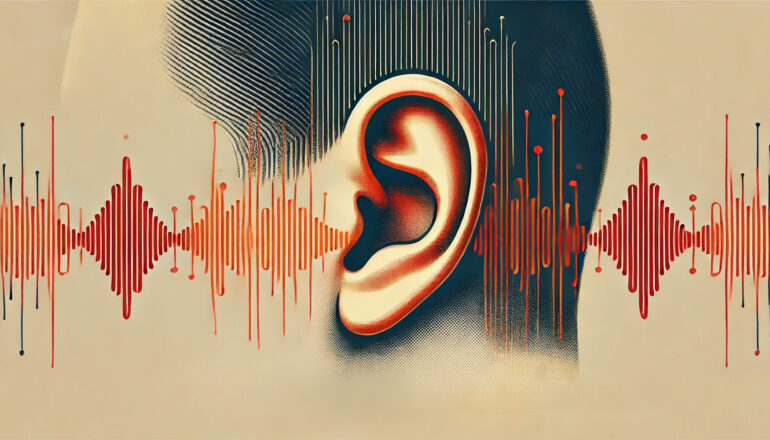Chirping, buzzing, roaring, crickets, hissing, humming…however you describe it – tinnitus can be bothersome! So where does this noise come from? And most importantly, how do you make it stop?
Tinnitus, ringing or buzzing in your ears, affects 20% of Americans. And while some tinnitus sufferers can ignore the pesky sound, others are debilitated by the constant noise in their ears. One of the worst things regarding this condition is how much is unknown about tinnitus, yet the profound impact it has on the lives of those who are affected is underestimated.
Although there is little information regarding the origin of tinnitus, we do have several well-researched theories on where the damage might start within a patient’s hearing. The inner ear is lined with tiny hair cells which move with the sound waves and trigger the electrical signals to the hearing nerve. Noise exposure can cause these hair cells to bend and break, which then triggers impulses of sound to the brain. Many of you have likely experienced this after attending a loud concert that left you with a ringing sound in your ears. This can be temporary or sometimes the effects are permanent. It is worth mentioning that the bending and breaking of these inner ear hair cells also results in hearing loss; therefore, hearing loss is often accompanied by tinnitus.
Some medications, both prescription and over the counter, can cause or worsen tinnitus. Other causes might be ear infections or a blockage of the ear canal due to wax. Factors such as stress, lack of sleep, caffeine or salt intact have also been known to increase tinnitus.
If you are experiencing tinnitus, you should schedule a hearing evaluation with a Doctor of Audiology. During the appointment, your symptoms, medications, and case history will all be discussed. In addition, a complete audiological examination, including a tinnitus evaluation, will be conducted. The Doctor of Audiology will then determine if further testing and/or referrals are necessary.
While a cure for tinnitus is still being researched, there are a few things that have been known to help tinnitus sufferers. The first is to avoid silence and keep sound around you! Many of the sound therapies currently being used in clinics include introducing a sound to avoid the quiet around you. Sounds can help distract your ears/brain from the tinnitus. Sound machines and apps on your cell phones can be used at night to play a peaceful sound such as ocean waves, rain or white noise.
If hearing loss is also present, a hearing aid is usually the first choice to manage the unwanted sounds and will help provide sound stimulation to mask the tinnitus. In most cases, the tinnitus can be measured or matched in the high frequencies which is also where most hearing loss occurs with loud noise exposure or aging, therefore killing two birds with one stone.
At Expert Hearing, we can pitch match your tinnitus (determine the pitch and loudness of the ringing through subjective testing) and program your hearing aids to specifically mask out your tinnitus. For patients with hearing loss and tinnitus, hearing aids will not only help them hear better but can also provide relief from tinnitus while exercising the brain with sound to help delay earlier onset cognitive decline. Also note that it is very important to avoid loud noise. This is the biggest known contributor to tinnitus. When loud noises cannot be avoided, such as when you use certain equipment or attend an event, be sure you wear hearing protection. In rare cases, tinnitus can occur in just one ear. It is important to note that persistent tinnitus in one ear should not be ignored and discussed with your Doctor of Audiology or an ENT physician.
Tinnitus can certainly be a frustrating condition, but the good news is that if addressed correctly and proactively – there can be relief. For more information or to schedule a complementary evaluation, please contact me at cori@experthearingsavannah.com or 912.777.8580.




